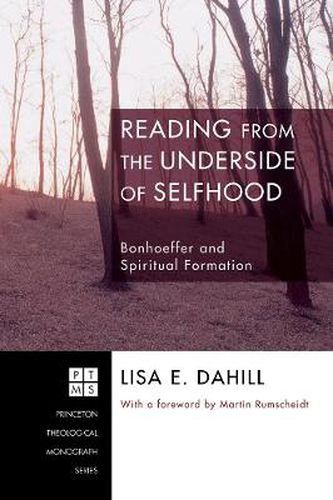Readings Newsletter
Become a Readings Member to make your shopping experience even easier.
Sign in or sign up for free!
You’re not far away from qualifying for FREE standard shipping within Australia
You’ve qualified for FREE standard shipping within Australia
The cart is loading…






This title is printed to order. This book may have been self-published. If so, we cannot guarantee the quality of the content. In the main most books will have gone through the editing process however some may not. We therefore suggest that you be aware of this before ordering this book. If in doubt check either the author or publisher’s details as we are unable to accept any returns unless they are faulty. Please contact us if you have any questions.
Dietrich Bonhoeffer’s example of self-sacrificing discipleship has for over fifty years inspired Christians around the world in both their resistance to evil and their devotion to Jesus Christ. Yet for some readers–particularly those who suffer trauma, abuse, and other forms of violence–Bonhoeffer’s insistence on self-sacrifice, on becoming a person for others, may prove more harmful than liberating. For those already socialized into self-abnegation, uncritical applications of Bonhoeffer’s teachings may reinforce submission, rather than resistance, to evil. This study explores Bonhoeffer’s understandings of selfhood and spiritual formation, both in his own experience and writings and in light of the role of gender in psycho-spiritual development. The central constructive chapter creates a mediated conversation between Bonhoeffer and these feminist psychologists on the spiritual formation of survivors of trauma and abuse, including not only dimensions of his thinking to be critiqued from this perspective but also important resources he contributes toward a truly liberating Christian spirituality for those on the underside of selfhood. The book concludes with suggestions regarding the broader relevance of this study and implications for ministry. The insights for spiritual formation developed here provide powerful proof of Bonhoeffer’s continuing and concretely contextualized relevance for readers across the full spectrum of human selfhood.
$9.00 standard shipping within Australia
FREE standard shipping within Australia for orders over $100.00
Express & International shipping calculated at checkout
Stock availability can be subject to change without notice. We recommend calling the shop or contacting our online team to check availability of low stock items. Please see our Shopping Online page for more details.
This title is printed to order. This book may have been self-published. If so, we cannot guarantee the quality of the content. In the main most books will have gone through the editing process however some may not. We therefore suggest that you be aware of this before ordering this book. If in doubt check either the author or publisher’s details as we are unable to accept any returns unless they are faulty. Please contact us if you have any questions.
Dietrich Bonhoeffer’s example of self-sacrificing discipleship has for over fifty years inspired Christians around the world in both their resistance to evil and their devotion to Jesus Christ. Yet for some readers–particularly those who suffer trauma, abuse, and other forms of violence–Bonhoeffer’s insistence on self-sacrifice, on becoming a person for others, may prove more harmful than liberating. For those already socialized into self-abnegation, uncritical applications of Bonhoeffer’s teachings may reinforce submission, rather than resistance, to evil. This study explores Bonhoeffer’s understandings of selfhood and spiritual formation, both in his own experience and writings and in light of the role of gender in psycho-spiritual development. The central constructive chapter creates a mediated conversation between Bonhoeffer and these feminist psychologists on the spiritual formation of survivors of trauma and abuse, including not only dimensions of his thinking to be critiqued from this perspective but also important resources he contributes toward a truly liberating Christian spirituality for those on the underside of selfhood. The book concludes with suggestions regarding the broader relevance of this study and implications for ministry. The insights for spiritual formation developed here provide powerful proof of Bonhoeffer’s continuing and concretely contextualized relevance for readers across the full spectrum of human selfhood.